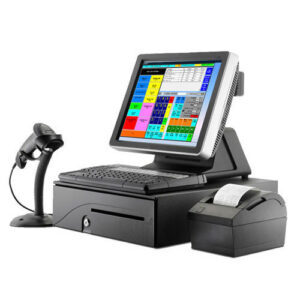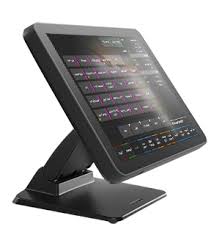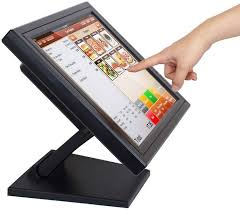Point of Sale System | Billing Machine | Billing Software
Point Of Sale Systems , Billing Machine & Billing Software


Point of Sale & Billing Software
Manya Solutions holds expertise in providing GST ready Point of sale , POS and Billing Software for RESTAURANT ,RETAIL , DEPARTMENTAL STORE , TAKEAWAY JOINTS, FINE DINING Restaurant , which is available as per customer requirement in different models and specifications. These are based on the latest technology and appreciated for their long service life, excellent performance & compact design. Offered at competitive prices, our range of Billing Printers . We are instrumental in providing Billing Printer which is basically a standalone compact point of sale machines / POS . We offer POS , Point of Sale System from ESSAE, POSIFLEX, TVS-e, BRADMA, WEP & Billing Software. Touch Point of sale Machine in Delhi , Noida /,Gurgaon & Faridabad. We have the Point of sale , POS with robust and sturdy base, smallest machine and the best.
|
Brands of Billing Machine
There are several billing machine brands available in Delhi, India. These billing machines are used by businesses for generating invoices, receipts, and managing their sales transactions. Keep in mind that the availability of specific brands and models may have changed since then, and new brands may have entered the market. Here are some popular billing machine brands in Delhi:
Tally: Tally is a well-known accounting and billing software company. They offer billing machines that are integrated with their software for comprehensive business management.
Epson: Epson is known for its reliable receipt printers and point-of-sale (POS) systems, including billing machines suitable for various business types.
Posiflex: Posiflex provides a range of POS terminals and billing machines designed for retail and hospitality businesses.
TVS Electronics: TVS Electronics manufactures various business equipment, including billing machines and POS systems, catering to the needs of different industries.
Wep Solutions: Wep Solutions offers a wide range of billing machines, including thermal and dot matrix printers, suitable for retail and other businesses.
Casio: Casio is known for its electronic products, and they offer electronic cash registers and billing machines for retail businesses.
Godex: Godex specializes in thermal printers and barcode label printers, which can be used for billing and inventory management in businesses.
Custom: Custom is a global manufacturer of POS systems and billing solutions, including thermal printers and receipt printers.
Bixolon: Bixolon provides various POS and billing solutions, including receipt and label printers, which are commonly used in businesses.
Wincor Nixdorf: Wincor Nixdorf offers a range of retail and banking solutions, including billing machines and POS systems.
NCR Corporation: NCR Corporation is a global technology company that provides various solutions for businesses, including billing and POS systems.
When choosing a billing machine brand in Delhi, consider your business requirements, such as the type of business, the volume of transactions, connectivity options, and software compatibility. Additionally, for the most up-to-date information on available brands and models, as well as pricing and support options.
Restaurant Billing Software Solutions
Restaurant billing software, also known as restaurant POS (Point of Sale) software, is a specialized type of software designed to streamline and manage various aspects of restaurant operations, especially the billing and payment processes. Here are some key features and functions commonly found in restaurant billing software:
-
Order Entry:
Restaurant POS software allows servers to enter customer orders quickly and accurately. This can include item selection, customization (e.g., specifying cooking preferences), and special requests.
-
Menu Management: You can easily update and customize your menu items, including descriptions, prices, and availability. This is particularly important for restaurants with frequently changing menus.
-
Table Management: Efficiently manage table assignments, reservations, and waitlists. The software helps staff track which tables are occupied, available, or reserved.
-
Billing and Payment: Automatically calculate the bill based on the orders, apply discounts or promotions, split bills among diners, and accept various payment methods, including cash, credit/debit cards, and mobile wallets.
-
Inventory Management: Keep track of inventory levels in real-time to ensure that popular dishes are always available and to reduce food wastage. Some systems can even generate purchase orders for restocking.
-
Employee Management: Manage staff access with role-based permissions, track working hours, and calculate employee wages or tips distribution.
-
Reporting and Analytics: Generate detailed reports on sales, inventory, and other performance metrics. This data can be used for decision-making and optimizing restaurant operations.
-
Customer Relationship Management (CRM): Store customer information and order history to personalize service and promotions. Loyalty programs can also be managed through the CRM.
-
Integration: Many restaurant billing software systems can integrate with other software and services, such as accounting software, online ordering platforms, and third-party delivery services.
-
Security: Ensure the security of customer payment information and sensitive data. Compliance with industry standards like PCI-DSS is crucial.
-
Kitchen Display System (KDS): Some restaurant POS systems have a KDS component that displays orders in the kitchen to facilitate efficient food preparation.
-
Tableside Ordering: With mobile or tablet-based POS systems, servers can take orders directly at the table, reducing errors and improving the overall dining experience.
-
Offline Capability: It should be able to function offline in case of internet connectivity issues and sync data once the connection is restored.
-
Customization: Tailor the software to your specific restaurant’s needs, such as configuring tax rates, service charges, and tipping options.
-
Customer Feedback: Some systems offer the ability to collect customer feedback directly through the POS system, which can be valuable for improving service.
When selecting restaurant billing software, consider the specific needs and scale of your restaurant, the type of cuisine you offer, and your budget. Additionally, look for software that offers reliable customer support and regular updates to ensure it remains compatible with changing technology and industry standards.
Retail Billing Software
Retail billing software, also known as point of sale (POS) software for retail, is a critical tool for businesses in the retail industry. It’s designed to facilitate various aspects of retail operations, especially the sales and billing processes. Here are some key features and functions commonly found in retail billing software:
Sales Processing: Retail POS software enables the efficient processing of sales transactions. It allows store staff to quickly scan or manually input product information, apply discounts or promotions, and calculate the total amount due.
Inventory Management: Keep track of inventory levels in real-time. The software helps monitor stock levels, automate reordering of products, and provide insights into which products are selling well and which need restocking.
Barcode Scanning: Integrate with barcode scanners to expedite the checkout process and reduce errors in product identification and pricing.
Pricing and Discount Management: Easily manage and update product prices, apply discounts, and run promotions or sales campaigns.
Payment Processing: Accept various payment methods, including cash, credit/debit cards, mobile wallets, and electronic transfers. Ensure secure handling of sensitive payment information.
Receipt Printing: Generate detailed receipts for customers, including itemized lists of purchased products, prices, taxes, and payment information.
Returns and Refunds: Process returns and refunds seamlessly while maintaining accurate inventory records.
Customer Management: Store customer information, purchase history, and contact details for marketing purposes and to offer personalized service.
Employee Management: Manage staff access with role-based permissions, track working hours, and calculate wages or commissions.
Reporting and Analytics: Generate reports on sales, inventory turnover, profit margins, and other key performance indicators. This data can aid in decision-making and business optimization.
Integration: Many retail billing software systems can integrate with other software and services, such as accounting software, e-commerce platforms, and customer relationship management (CRM) tools.
Multi-store Support: If you operate multiple retail locations, choose software that can centrally manage inventory and sales data across all stores.
Offline Capability: Ensure that the software can function offline and sync data when the internet connection is restored.
Customization: Tailor the software to your specific retail needs, such as configuring tax rates, loyalty programs, and custom receipt templates.
Security: Prioritize the security of customer payment information and sensitive data. Compliance with industry standards like PCI-DSS is crucial.
E-commerce Integration: If you have an online store, consider software that can integrate with your e-commerce platform to maintain consistency between online and in-store inventory.
Customer Loyalty Programs: Some retail POS systems offer tools to create and manage customer loyalty programs, which can help attract repeat business.
When choosing retail billing software, consider factors such as the size and type of your retail business, the scalability of the software, customer support, and budget constraints. The right POS system can significantly improve efficiency, customer service, and overall profitability in the retail sector.


